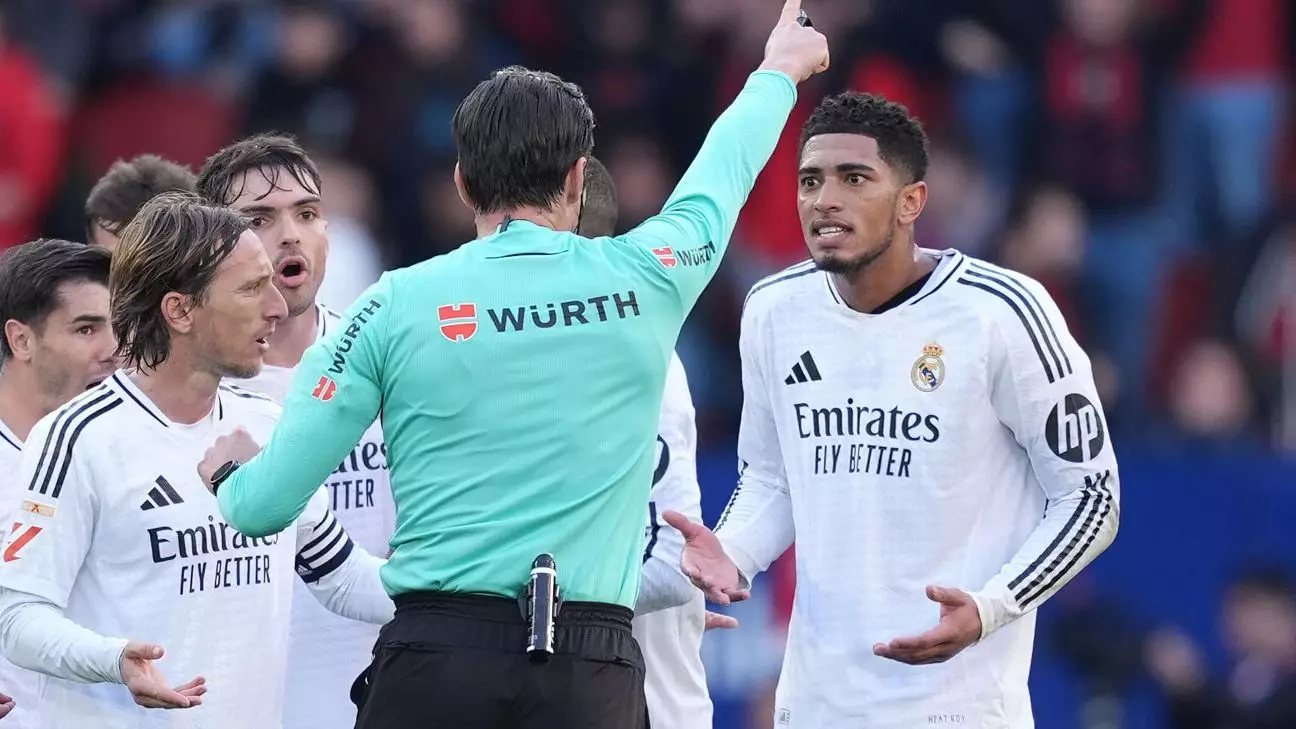In a notable incident that has sparked discussions within Spanish football, referee José Luis Munuera Montero faced scrutiny concerning a potential conflict of interest linked to his role as a co-owner of Talentus Sports Speakers, a consultancy firm. The Royal Spanish Football Federation (RFEF) took a proactive approach by launching an investigation to ascertain whether Munuera’s business endeavors were incompatible with his responsibilities as a match official. The federation’s findings, however, exonerated Munuera, declaring that there were no grounds for disciplinary action.
The controversy erupted primarily following a contentious match between Real Madrid and Osasuna, in which Munuera issued a red card to Jude Bellingham for what he perceived as foul language. This decision incited a torrent of backlash directed at Munuera on social media, resulting in a wave of insults and even death threats. The intensity of the public reaction necessitated a thorough examination of Munuera’s commercial affiliations, raising questions about the integrity of officiating in football.
Upon completing their investigation, the RFEF stated that they had meticulously evaluated Munuera’s financial and corporate ties, arriving at the conclusion that his business activities bore no real or potential conflict with his role as a referee. The federation emphasized its commitment to maintaining high ethical standards within the sport, and the regulatory review served to reassure stakeholders that the integrity of refereeing was upheld.
In their official communication, the RFEF highlighted the importance of distinguishing between legitimate oversight and unfounded attacks against referees. They noted the distressing trend of abuse faced by match officials, reiterating their support for Munuera during this turbulent period. This incident represents a broader issue at play in the realm of sports where officials are often subjected to unjust criticism and hostility from fans and media alike.
Munuera’s case illustrates not only the pressures of the referee’s role but also the personal toll that comes with public scrutiny. Following the match, he deactivated his Instagram account, overwhelmed by the vitriol directed at him. He publicly maintained his innocence, asserting that his consultancy had not engaged in any transactions with sports entities since its inception. His threat of legal action against media outlets reporting on the matter underscores the severity of the situation he faced.
The RFEF’s acknowledgment of referee abuse as a systemic issue within football serves as a call to action for stakeholders in the sport. Addressing this culture of hostility is paramount to preserving the integrity of officiating, encouraging a more respectful dialogue around key decisions made during matches.
The outcome of Munuera’s case and the surrounding events emphasize the significance of transparency and accountability in sports officiating. The RFEF’s investigation and conclusion may restore some confidence in the system, but ongoing scrutiny and dialogue about the treatment of referees must continue. As football evolves, so too must the approaches to combatting abuse, ensuring that officials can perform their duties without fear of retribution or discrimination.
Ultimately, this case transcends Munuera’s personal experience, reflecting a critical need for changes within the culture of football that foster respect and protection for officials and their integrity in the sport.

